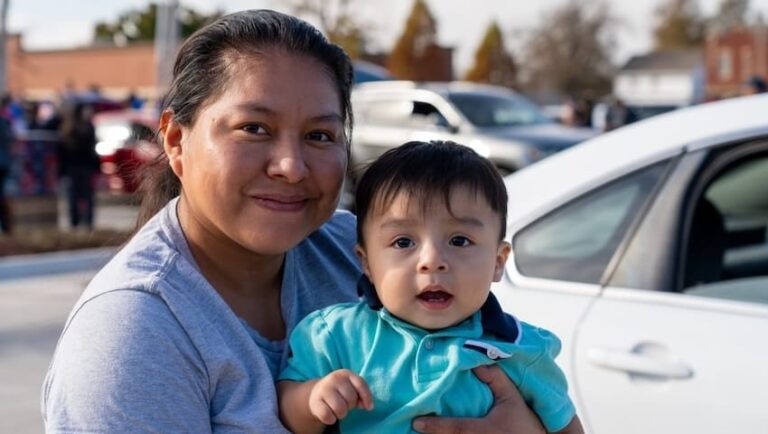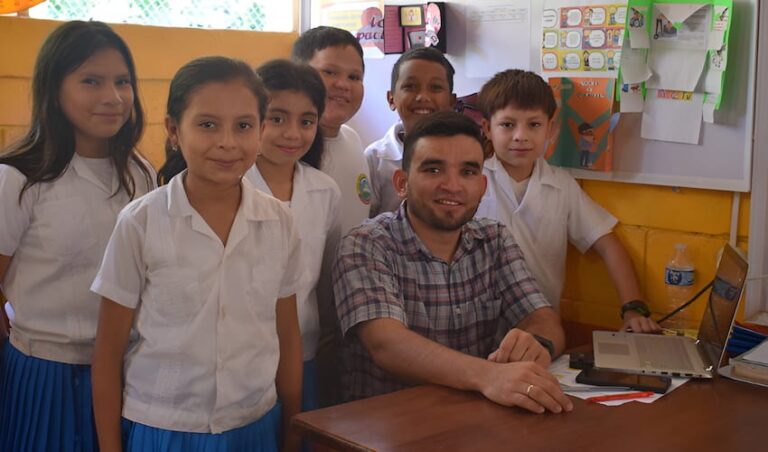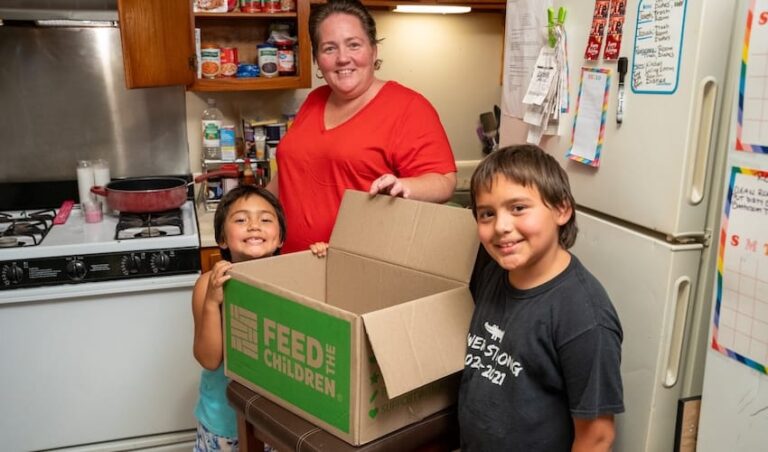
Unemployed and Hungry
When parents and caregivers can’t get a job, or when the work they do doesn’t pay a living wage, families often struggle with hunger. In early 2024, the unemployment rate in the U.S. was 3.7%, or about 6.1 million people.
For some context, before the COVID-19 pandemic hit the U.S. in February 2020, the unemployment was 3.5%. More than four years later, Americans still have not fully recovered.
When William lost his job in 2021, he worried about his family — his wife, May, and their children.
“It’s very stressful. Very stressful when you get cut from your job of 13 years. What are you going to do next? What is your next move? You have three daughters. You have a wife. You know what I mean? You get really panicky,” William said.
May doesn’t work because she has back problems, and without William’s income, the family was suffering. They couldn’t pay bills. They didn’t have any gas money to hunt for jobs, and the family almost lost their house.
If there’s no money for housing, many families find it impossible to afford food. Historically, higher unemployment rates also correspond with higher food insecurity rates.
Adeline’s husband was the breadwinner until an injury took away his ability to work. When he stopped working, things started to spiral fast.
“We found ourselves not able to pay our rent or our bills. We didn’t know who to turn to. Family couldn’t help. We’re not the people that ask for handouts. We try to do it ourselves,” she recalled.
One of Adeline’s biggest struggles: food. The thought of her son going hungry was heartbreaking.
This harsh reality isn’t just for those without a job. About 4.4 million Americans are employed part-time but would prefer full-time employment. Most of these people are working part-time because their hours were cut, or they were unable to find full-time work.
Laina’s struggles started during the pandemic. Her husband James works at a restaurant, and he’d been there for 14 years. While the restaurant was able to stay open, the owner had to cut his hours. James went from working full time to working only two days a week.
“We couldn’t pay our rent,” Laina said. “I always have paid my rent. Never been late with my rent.”
Without James’ full-time job, the couple was evicted from their house.
Single mom Katrina must constantly juggle her small paycheck to provide for her family.
“It’s very hard. I make those decisions every day. But if you don’t have that money flowing in, how are you going to be able to do it?” she said.
That’s where your support is crucial. When you partner with Feed the Children, you’re offering a lifeline to those who can’t make ends meet, no matter how hard they work. Providing food and household essentials allows families the ability to use their resources on other necessities, like housing and utilities. And it puts food on the table so their children can go to bed with full tummies.






